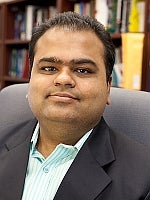In order to significantly expand the PHEV/ BEV market, and to increase the use of lithium-ion batteries in electric grids, there is a need to develop optimal charging strategies to utilize the batteries more efficiently and enable design for longer life. Advanced battery management systems (BMS) that can calculate and implement such strategies in real-time are expected to play a critical role towards the same. This talk will present approaches for determining model-based optimal charging profiles for batteries, and experimental validation of the same. Model-based BMS enables > 100% improvement in cycle life, 30% reduction in charging time, and >50% reduction in temperature rise. Validation of the same for 6 different batteries/sizes/chemistries/form-factors will be presented.
In addition, challenges in simulating multiscale-multidomain-multiphysics-multiphase models for next-generation batteries will be presented. A case study on the importance of jump mass transfer will be presented.

Dr. Venkat Subramanian is the Ernest Dashiell Cockrell II Professor of Engineering in the Department of Mechanical Engineering and Material Science Engineering, at the University of Texas at Austin UT). Professor Subramanian is an elected ECS Fellow, is a past elected chair of IEEE division of the Electrochemical Society. He is also a past elected technical editor of the Electrochemical Society. He is also a past elected chair of Area 1e: (Electrochemical Engineering) of the AIChE. His group aims to be the world’s leading group in the area of model-based Battery Management Systems (BMS). He currently serves as the graduate advisor of the material science & engineering program at UT.

